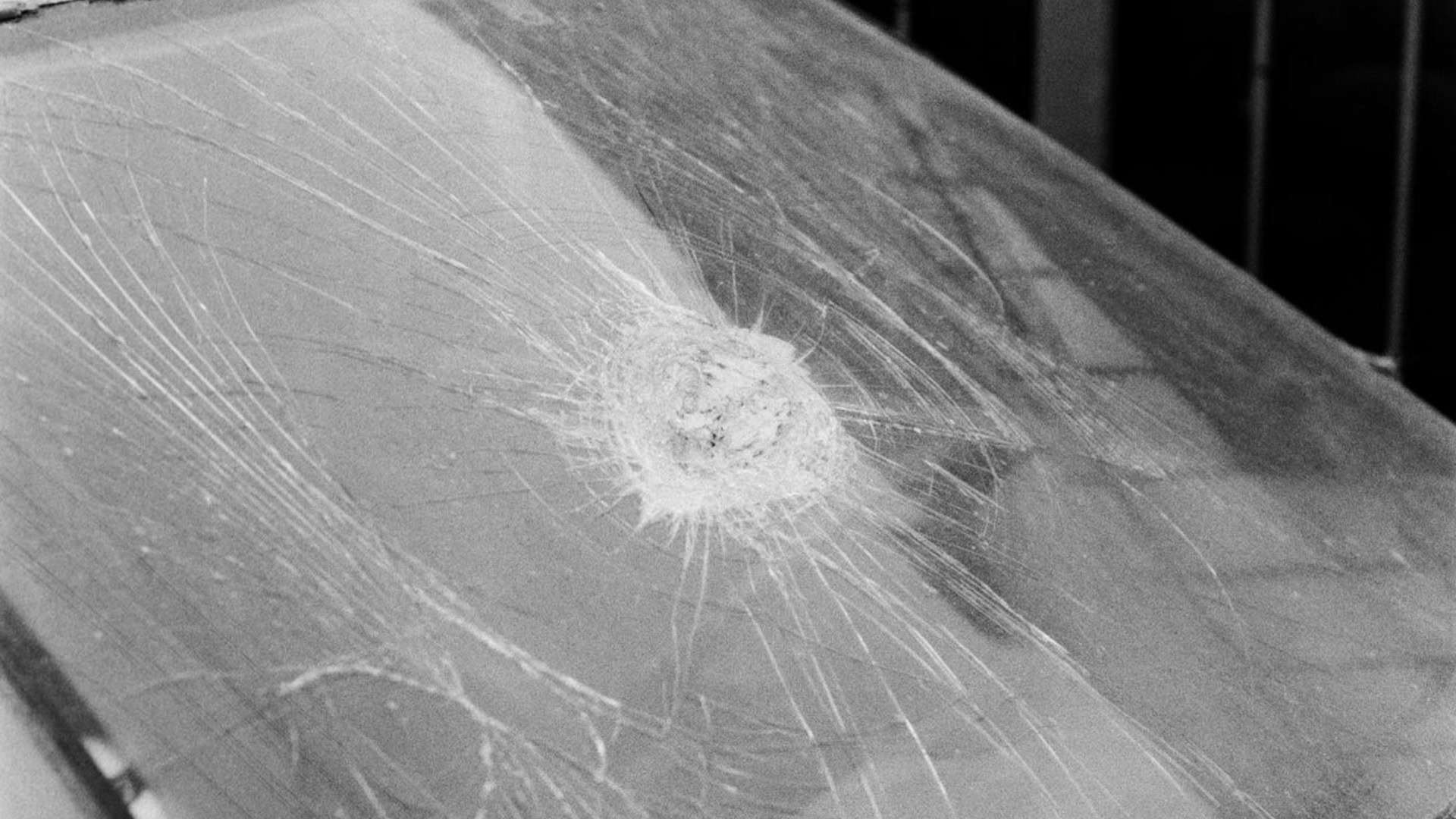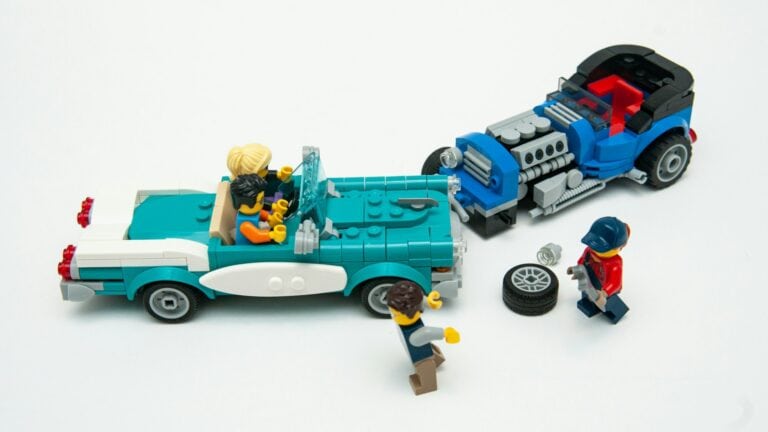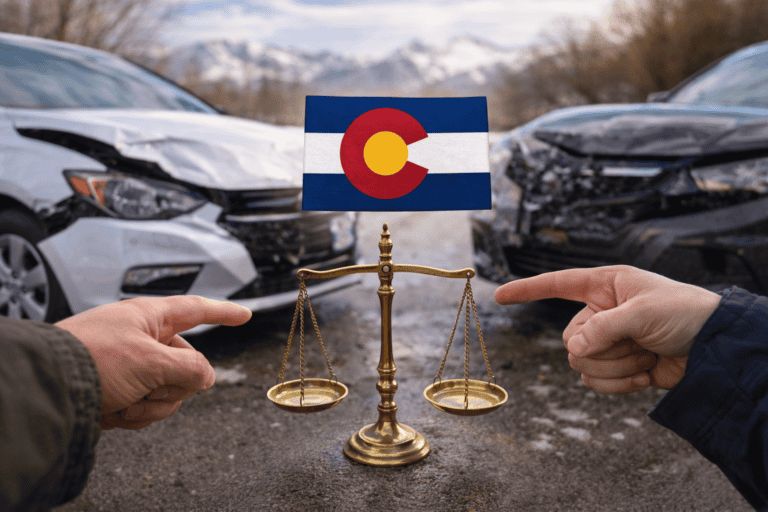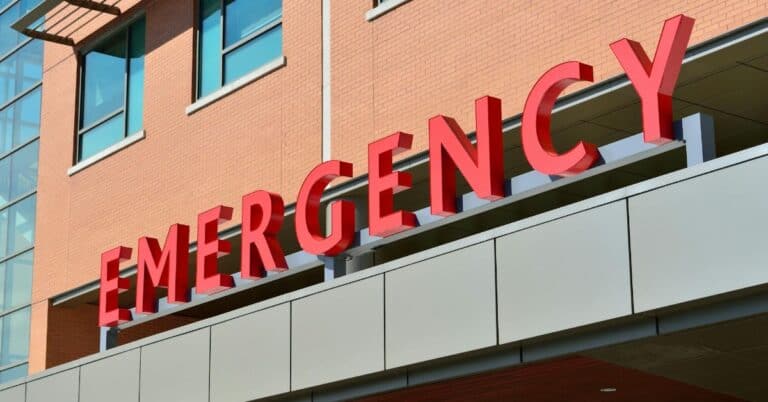Can You Drive with a Cracked Windshield in Colorado?

Introduction
Your windshield plays a vital role in ensuring your safety on the road. While a small crack or chip may seem like a minor issue, ignoring it can lead to serious legal and safety consequences. In Colorado, the law is clear about windshield requirements, and driving with a damaged windshield can affect not only your safety but also your insurance claims if you’re involved in an accident. In this article, we’ll explore the legal requirements for windshields in Colorado, safety considerations, and how driving with a cracked windshield could impact your accident claims.
Colorado’s Legal Requirements for Windshields
In Colorado, there are specific laws that govern the condition of your vehicle’s windshield. These laws are designed to ensure that drivers maintain a clear and unobstructed view of the road, which is crucial for safe driving. Here’s what you need to know:
1. Windshield Damage Obstructing the Driver’s View
Under Colorado law, it is illegal to drive with a cracked or chipped windshield if the damage obstructs the driver’s view. The Colorado Revised Statutes (C.R.S.) 42-4-229 requires windshields to be in good repair, meaning that any cracks, chips, or discolorations that impair the driver’s ability to see the road clearly can lead to a traffic citation.
- What this means: If the crack is located in the driver’s direct line of sight or creates a visibility hazard, law enforcement in cities like Commerce City, Denver, or Aurora may issue you a ticket.
2. Colorado’s Safety Inspection Standards
While Colorado does not require annual vehicle inspections, law enforcement can issue a citation if your vehicle’s windshield fails to meet safety standards. This includes cracks or chips that interfere with the wiper’s path or reduce visibility. If your windshield damage extends beyond what is considered safe, you may be fined and required to repair or replace the windshield to comply with state law.
3. Repair or Replace?
The law does not mandate whether you must repair or replace a damaged windshield, but the decision largely depends on the size and location of the damage. Small chips or cracks, especially those that are less than three inches long and not in the driver’s line of sight, can often be repaired. Larger cracks or those affecting visibility may require a full replacement.
Safety Concerns with a Cracked Windshield
Beyond the legal aspects, driving with a cracked windshield poses significant safety risks. A windshield is a critical component of your vehicle’s structural integrity, providing support in the event of a rollover and protecting you from debris. Here are the main safety concerns to consider:
1. Compromised Structural Integrity
The windshield helps support the roof of your vehicle. A cracked or damaged windshield weakens this structure, making your car more vulnerable in the event of a rollover accident. This is especially important on Colorado’s busy highways or during harsh winter conditions when accidents are more likely.
2. Impaired Airbag Functionality
In many vehicles, the windshield plays a role in proper airbag deployment. If your windshield is damaged, it may not provide the necessary support for the airbag to deploy correctly in the event of an accident, putting you at greater risk of injury.
3. Reduced Visibility
Even minor cracks can impair your ability to see the road clearly, especially at night or during inclement weather. In cities like Broomfield and Westminster, where visibility can already be compromised by fog or snow, driving with a cracked windshield increases the risk of an accident.
How a Cracked Windshield Affects Accident Claims
If you are involved in a car accident while driving with a cracked windshield, it could impact the outcome of your insurance claim or legal case. Here’s how:
1. Determining Fault
In Colorado, fault is a critical factor in car accident claims. If your windshield crack contributed to the accident—such as by impairing your visibility—you may be found partially at fault. Under Colorado’s modified comparative negligence law, your compensation could be reduced by the percentage of fault assigned to you. For example, if you’re deemed 20% at fault for driving with an obstructed view, your compensation would be reduced by 20%.
2. Insurance Coverage for Repairs
If you have comprehensive car insurance, it may cover the cost of windshield repair or replacement. However, if you’ve delayed getting your windshield fixed and it contributed to the accident, your insurer may question the validity of your claim. Insurance companies in Colorado, including those serving Aurora and Denver, are likely to scrutinize claims where a cracked windshield is a factor in an accident.
3. Legal Liability
If your cracked windshield is found to have contributed to an accident where someone else was injured, you may face additional legal consequences. In severe cases, you could be held liable for damages if it’s proven that your windshield damage hindered your ability to drive safely.
Conclusion
Driving with a cracked windshield in Colorado can have serious legal, safety, and financial implications. Not only does it put you at greater risk on the road, but it can also impact your ability to file an insurance claim or receive compensation if you’re involved in an accident. The best way to avoid these issues is to ensure your windshield is in good repair and to address any cracks or chips promptly.
If you’ve been involved in an accident and have concerns about how a cracked windshield might affect your claim, contact Flanagan Law today. Our experienced team can help guide you through the legal process and protect your rights.
FAQ
Is it illegal to drive with a cracked windshield in Colorado?
Yes, if the crack obstructs your view or poses a safety hazard, it is illegal to drive with a cracked windshield in Colorado. You can be fined and required to repair or replace the windshield.
Can I repair my windshield, or do I need a full replacement?
Minor chips and small cracks can often be repaired. However, if the crack is large, extends across the windshield, or impairs your visibility, a full replacement may be necessary to comply with Colorado’s safety standards.
What are the penalties for driving with a cracked windshield?
In Colorado, driving with a cracked windshield that obstructs your view can result in a traffic citation and fines. You may also be required to repair the damage to avoid further penalties.
How does a cracked windshield affect accident claims?
If your cracked windshield contributed to an accident, you may be found partially at fault, which could reduce your compensation. Insurance companies may also scrutinize claims involving a damaged windshield.
Does insurance cover windshield repairs?
If you have comprehensive coverage, your insurance may cover the cost of windshield repair or replacement. However, it’s important to check with your insurer and have any necessary repairs done promptly to avoid complications.
Maintaining your vehicle’s windshield in good condition is essential for both legal compliance and safety. For assistance with accident claims or legal issues related to driving with a cracked windshield, reach out to Flanagan Law for expert guidance.






